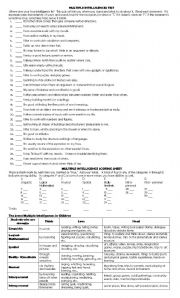

Therefore, consistent and robust is this finding that ( 12) termed it a ‘male hubris-female humility’ effect in self-estimated intelligence. Specifically, ( 8) observed that, with very few exceptions, male self-estimates are higher than female self-estimates for overall intelligence and several multiple intelligences (particularly mathematical and spatial intelligence). Various research groups have been working in this area including those associated with Ackerman in the U.S., Furnham in England and Rammstedt in Germany. Perhaps the most important outcome from the latter research is the finding that, when asked to estimate their own intelligence, men tend to give themselves higher scores than women ( 10, 8, 11). On the other hand, a growing body of work has examined the way in which groups of individuals in different cultural contexts perceive their own and others’ intelligence ( 8, 9). On the one hand, studies have examined how, and to what extent, lay understandings of intelligence differ from expert opinion, as well as the practical implications of such differences ( 5– 7).


Over the past three decades, the literature on lay beliefs about intelligence and its estimates has grown dramatically ( 2– 4).

There is considerable evidence that intelligence is a powerful predictor of professional and personal life success as well as mental/physical health and longevity ( 1). The latter is variously defined as the ability to reason, plan, solve problems, think abstractly, comprehend complex ideas, learn quickly and learn from experience. This study is about self-estimated intelligence as opposed to psychometrically evaluated intelligence which is one of the core concepts in differential psychology. Implications of the results are also considered. These results are discussed in terms of the cross-cultural literature in the field. Multiple regressions indicated that participants’ Big Five personality typologies and test experience were significant predictors of self-estimated intelligence. Participants also believed that they were more intelligent than their parents and partners, and that their fathers were more intelligent than their mothers. There were, however, no sex differences in ratings of parental and partner multiple intelligences, which is inconsistent with the extant literature. In accordance with previous research, men rated themselves higher than women on logical-mathematical, spatial and musical intelligence. Two hundred and fifty-eight Iranian university students estimated their own, parents’, and partners’ overall (general) intelligence, and also estimated 13 ‘multiple intelligences’ on a simple, two-page questionnaire which was previously used in many similar studies.


 0 kommentar(er)
0 kommentar(er)
